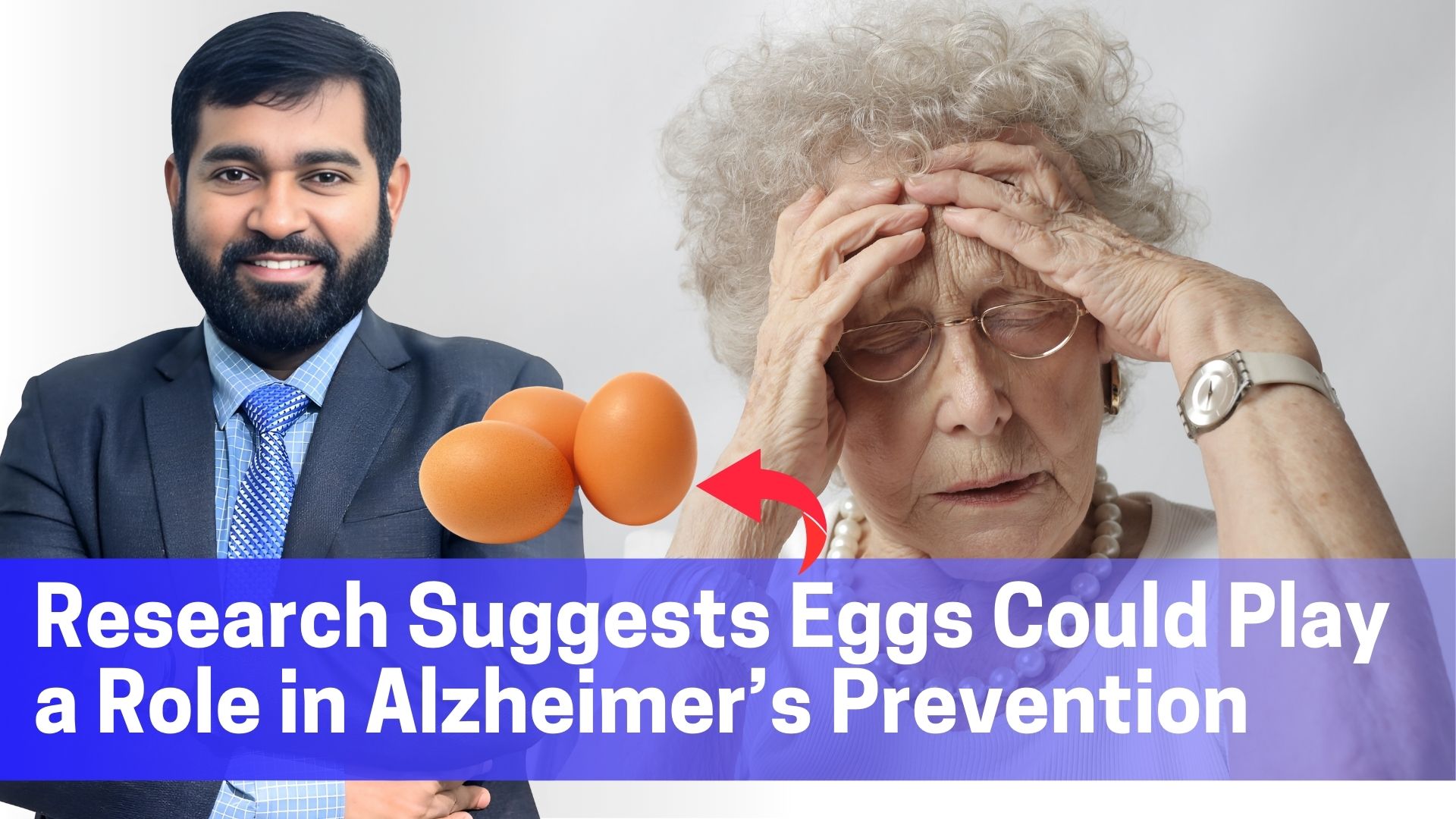22
Research Suggests Eggs Could Play a Role in Alzheimer’s Prevention
Recent studies have indicated a potential link between egg consumption and a reduced risk of Alzheimer’s dementia. A significant study published in The Journal of Nutrition involved 1,024 older adults and found that those who consumed more than one egg per week had a 47% lower risk of developing Alzheimer’s dementia over an average follow-up period of 6.7 years. The researchers attributed this association primarily to the high choline content found in eggs, which accounted for 39% of the relationship between egg intake and lower Alzheimer’s risk. Eggs are also rich in other nutrients beneficial for brain health, such as omega-3 fatty acids and lutein.
Key Findings
- Choline Content: Eggs are one of the few common dietary sources of choline, an essential nutrient for brain health. One large egg contains about 150 milligrams of choline, providing approximately 25% of the recommended daily value. Increased choline intake has been linked to improved cognitive function and may help protect against neurodegenerative diseases.
- Study Details: The study analyzed dietary habits through self-reported questionnaires and adjusted for various confounding factors. Of the participants, 280 (27.3%) were diagnosed with Alzheimer’s dementia during the study period.
- Broader Implications: This research builds on previous findings that even limited egg consumption is associated with slower rates of memory decline. The results suggest that simple dietary changes, such as increasing egg intake, could have significant implications for cognitive health as people age.
- Limitations: While the findings are promising, the study does not establish a direct cause-and-effect relationship between egg consumption and reduced Alzheimer’s risk. Further research is needed to confirm these associations across diverse populations.
Conclusion
The evidence suggests that incorporating eggs into the diet may be beneficial for reducing the risk of Alzheimer’s dementia due to their rich nutrient profile, particularly their choline content. However, it is essential to consider these findings within the broader context of overall dietary patterns and lifestyle choices that support brain health.
Reference Links
- New Study Finds a Relationship Between Eating Eggs and a Reduced Risk of Alzheimer's Dementia - Incredible Egg
- New Study Finds a Relationship Between Eating Eggs and a Reduced Risk of Alzheimer's Dementia - PR Newswire
- Association of Egg Intake With Alzheimer's Dementia Risk - PubMed
- Could Eating Eggs Prevent Dementia? - News-Medical
- Association Between Egg Consumption and Dementia Risk - PMC
- Here's What Makes Eggs a Potential Alzheimer's Prevention Food - Verywell Health
- Study Finds Eggs Could Help Prevent Alzheimer's Disease - Men's Journal
These references provide further insights into the research surrounding eggs and their potential role in preventing Alzheimer’s disease.




